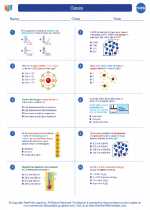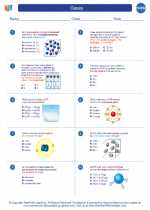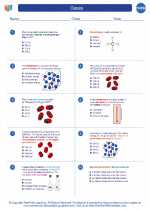Transport
Transport in the context of high school chemistry refers to the movement of substances from one place to another. This can include the movement of molecules within a cell, the transport of chemicals in a reaction, or the movement of substances across a membrane.
Types of Transport
There are several types of transport processes that are important in chemistry:
- Diffusion: The passive movement of molecules from an area of high concentration to an area of low concentration.
- Osmosis: The diffusion of water across a selectively permeable membrane.
- Active Transport: The movement of molecules across a membrane against their concentration gradient, requiring energy in the form of ATP.
- Facilitated Diffusion: The passive movement of molecules across a membrane with the help of transport proteins.
- Bulk Transport: The transport of large molecules or particles via endocytosis or exocytosis.
Key Concepts to Study
When studying the topic of transport in chemistry, it's important to understand the following key concepts:
- The role of concentration gradients in driving diffusion and osmosis.
- The function of transport proteins in facilitating the movement of molecules across membranes.
- The difference between passive and active transport, and the role of ATP in active transport.
- The processes of endocytosis and exocytosis in bulk transport.
Study Tips
Here are some tips to help you study and understand the topic of transport in high school chemistry:
- Use visual aids such as diagrams and animations to understand the movement of molecules during different types of transport.
- Practice solving problems related to concentration gradients and the direction of molecule movement.
- Create flashcards to remember the key terms and concepts related to transport.
- Form study groups with classmates to discuss and explain the processes of transport to each other.
- Relate the concept of transport to real-life examples such as the movement of gases in the atmosphere or the absorption of nutrients in the human body.
By understanding the different types of transport and the factors that influence the movement of substances, you can gain a deeper understanding of how chemicals and molecules interact and move within various systems.



